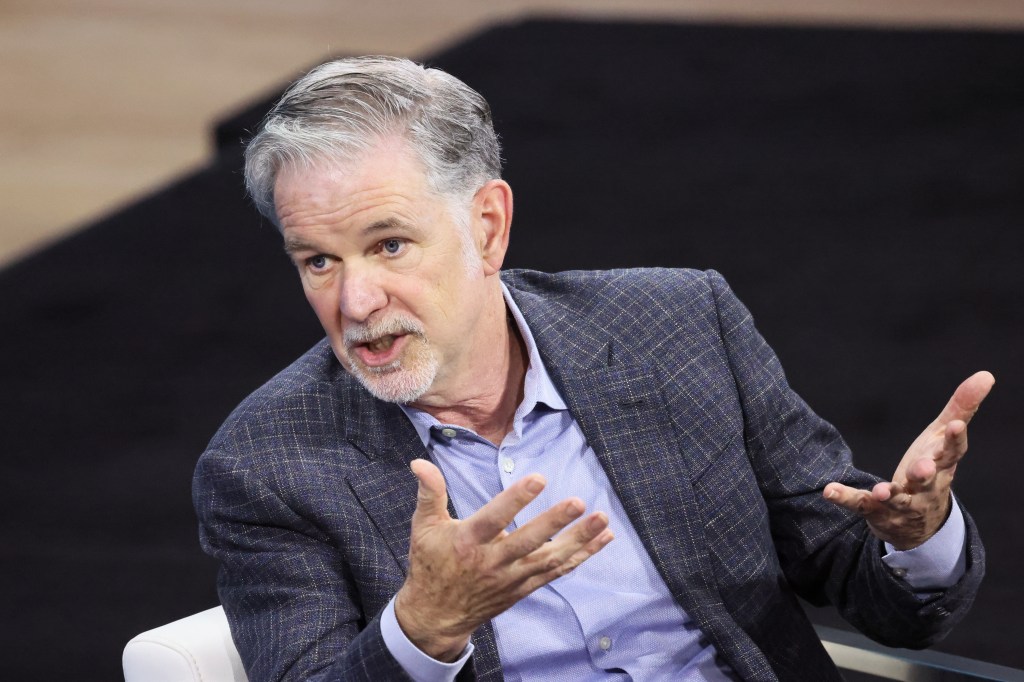Netflix is poised to crack down on password sharing outside of households, the online streaming giant has confirmed.
Announcing its Q4 results, Netflix said it would roll out a paid option for those who want to share their accounts. “Today’s widespread account sharing (100M+ households) undermines our long-term ability to invest in and improve Netflix, as well as build our business,” Netflix said in a shareholder letter.
“While our terms of use limit use of Netflix to a household, we recognise this is a change for members who share their account more broadly. As we roll out paid sharing, members in many countries will also have the option to pay extra if they want to share Netflix with people they don’t live with.”

The Netflix password crackdown starts in March
Netflix announced plans to crack down on password sharing late last year, but it didn’t provide a firm date for it to begin.
While a date still isn’t confirmed, Netflix specified the password-sharing measures would come in later in the first quarter of this year, which would suggest you can expect them to be in place by the end of March.
There is no news on how much the password-sharing Netflix option will cost, but it is offered in some markets for US$3, so it will be cheaper than buying two accounts.
As I wrote previously, when Netflix does start to crack down on password sharing, it will be able to tell if you try to carry on doing so. Netflix collects vast amounts of user data, and password sharing can be detected via IP addresses, device IDs and account activity.
The streaming giant seems determined—Netflix concedes that learning from experience in Latin America, where it has rolled out paid sharing, there will be “some cancel reaction in each market”, which will impact near-term member growth.
“But as borrower households begin to activate their own standalone accounts and extra member accounts are added, we expect to see improved overall revenue, which is our goal with all plan and pricing changes,” it said.
The Netflix ad-supported option
Last year, Netflix launched an ad-supported tier, but it hasn’t been that popular. Netflix said it believes branded television advertising is “a substantial long-term incremental revenue and profit opportunity for Netflix”, adding that its “ability to stand up this business in six months underscores our commitment both to give members more choice and to reaccelerate our growth.”
“While it’s still early days for ads, and we have lots to do (in particular better targeting and measurement), we are pleased with our progress to date across every dimension: member experience, value to advertisers, and incremental contribution to our business,” Netflix said.
“Engagement, which is consistent with members on comparable ad-free plans, is better than what we had expected and we believe the lower price point is driving incremental membership growth.”

Netflix said the reaction to the launch from consumers and advertisers has “confirmed our belief that our ad-supported plan has strong unit economics (at minimum, in line with or better than the comparable ad-free plan) and will generate incremental revenue and profit.”
It concedes that the impact on 2023 will be modest “given that this will build slowly over time.”
It is facing tough competition from rivals, but Netflix said its Q4 content outperformed expectations: Wednesday was its third most popular series ever; Harry & Meghan the second most popular documentary series; Troll its most popular non-English film; and Glass Onion: A Knives Out Mystery was its fourth most popular film.
Netflix also announced that CEO Reed Hastings would step down after 25 years at the helm. Ted Sarandos and Greg Peters are now co-CEOs of Netflix, with Reed Hastings staying on as executive chairman.
This article was first published on forbes.com.
Tap here for today’s top stories on Forbes Australia
- Everything we know about DOGE dividend checks—And how they could contribute to inflation
- What to know about Clive Palmer’s new political party ‘heavily inspired by Trump’
- Trump suggests he’s considering ‘DOGE Dividend’ checks for Americans
- Apple debuts new iPhone with the 16e – Here’s what you need to know
- Who would get Musk’s DOGE dividend via a $5,000 stimulus check?